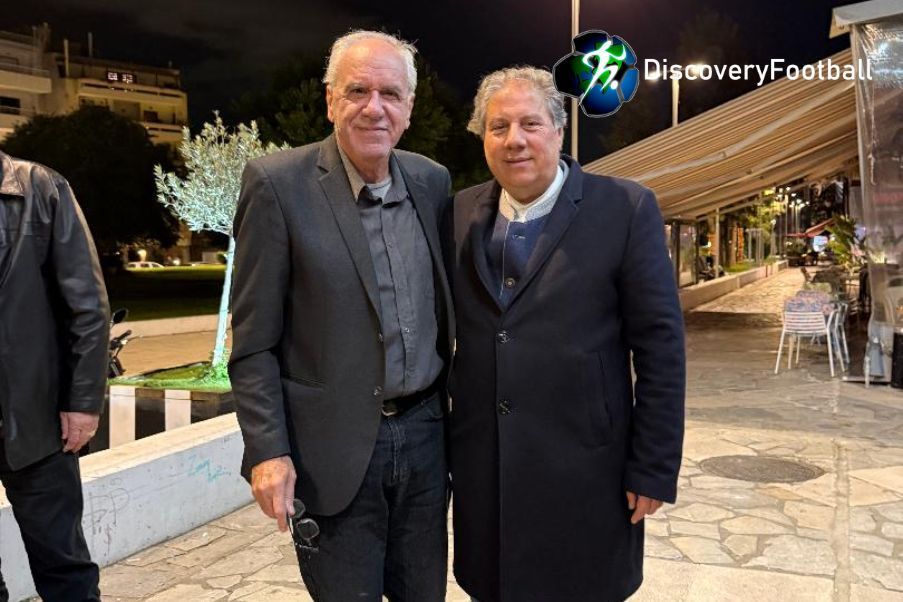Have a nice trip to the wonderful Gianluca Vialli
The former italian player of Sampdoria, Juve, Chelsea and Italia national team, died with 58th years old
All of us, especially journalists but also football people in general, have known for a long time about Gianluca Vialli's uneven battle with cancer. But none of us wanted to believe that this time too he would not emerge victorious.
The news of his death on Friday morning, January 6, spread immense sadness to all of us. In the teams he worked with (as a football player and coach) during his great career, in old teammates and opponents, but also in various bodies of sports and politics.
During his career, he trained alongside some of the greatest footballers of all time. From Baggio to Del Piero, from Desailly to Ferrara, from Mihailovic to Peruzzi and he gave everyone a small part of his happy and passionate world, his fast and exciting way of life by entering their hearts.
Vialli was a "tamer" of emotions who knew how to handle problems and people and who could look cancer in the eye, laughing and crying with it.
Speaking about his battle with cancer last year he summed it up by saying: “I was a footballer and a strong man but also fragile and I think anyone can identify with himself. I am here with my flaws, my fears and my desire to do something important.
I'm not fighting cancer because I don't think I could beat it, it's a much stronger opponent. Cancer is an unwelcome traveling companion.
He got on the train with me and I must go on, travel with my head down, never give up, hoping that one day this unwanted visitor will tire and let me live in peace for many more years, because there is so much more to come. I want to do".
Ciao Gianluca, non ti dimenticheremo mai 💙 pic.twitter.com/ZnAbs9qDUe
— Nazionale Italiana ⭐️⭐️⭐️⭐️ (@Azzurri) January 6, 2023
I met Gianluca for the first time in person in 1985 when Larissa played against Sampdoria in Genoa for the Cup Winners' Cup. The Italian team had won 1-0 (1-1 the first match in Greece) with a goal by Roberto Mancini after a pass from Viali. Comfortable, taciturn. I met him again at the UEFA Congress in March (3) 2019 in Amsterdam where he was with the coach of the Italian national team and his great friend, Roberto Mancini. I knew about his illness.
His legacy is not only athletic but also spiritual because he embraced the disease by simply trying to do the best he could while suffering.
He started playing football in Cremonese (1980-1984). Then he was taken to Sampdoria by Paolo Mandovani (1984-1992), with whom he won a championship and reached the final of the Champions League. What he failed to do with the Blues, he succeeded with Juventus (1992-1996) where in 1996 he won the Champions Cup in Rome. With Chelsea he won the Cup Winners' Cup in 1999 (1996-1999). As a coach he worked at: Chelsea (1998-2000) and Watford (2001-2002)
Italy's prime minister, Giorgia Meloni, tweeted: "We will not forget your goals, your legendary bicycle kicks, the joy and emotion you gave to the whole nation in that hug with Mancini after his victory European Championship.
But above all we will not forget the man. To God Gianluca Vialli, the "Lion King" on the field and in life."
"An example of courage and dignity on the field and in life" was the comment of Italy's once great midfielder Andrea Pirlo.
He was such a smart man that he understood that the fight had to be done on the pitch to win a game, but off the pitch it was all about patience and a lot of attention to troubleshooting.
Vialli decided to cut his hair out of respect and love for his teammate Andrea Fortunato, who fell ill with leukemia when they were both playing for Juventus. This was Viali - a man of few words but with very significant and profound gestures.
When Juventus returned to winning the Scudetto, with his outstanding performance at the 'Delle Alpi' in a 4-0 win over Parma, after a goal he ran to hug a young ball boy who had approached him to celebrate.
LMA chairman Howard Wilkins said: “Gianluca came to England as one of football's most respected players at a time when the Premier League was beginning to attract the world's greatest talent.
His footballing ability and leadership qualities were clear to all from day one at Chelsea. The early success he enjoyed in his coaching career showed the promise of a coach armed with the mind of the Italian greats.
He was a passionate footballer, who cared deeply about the game and its future. Our thoughts are with his family and friends at this time."














